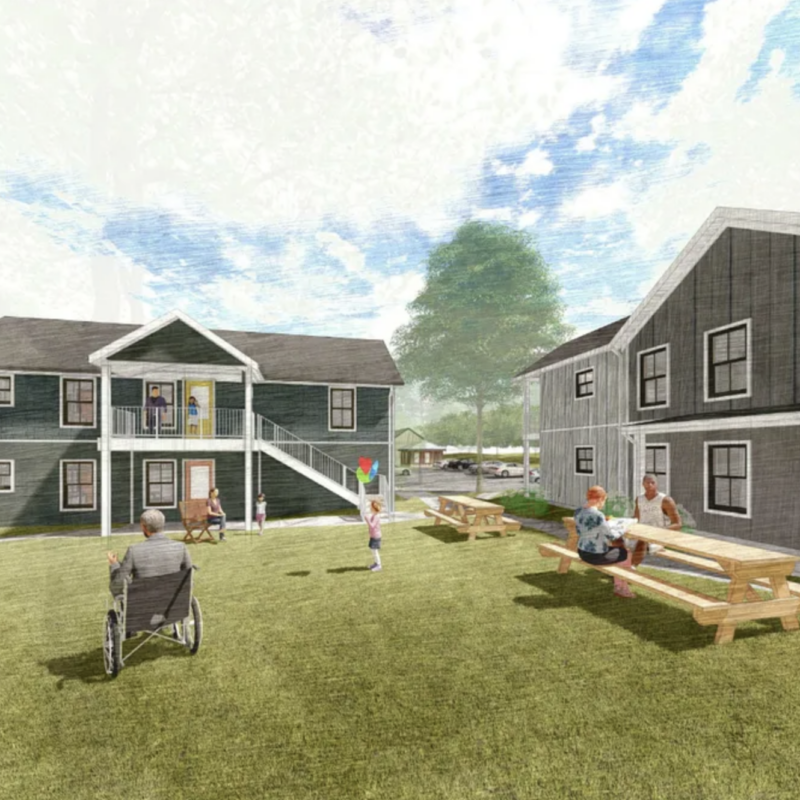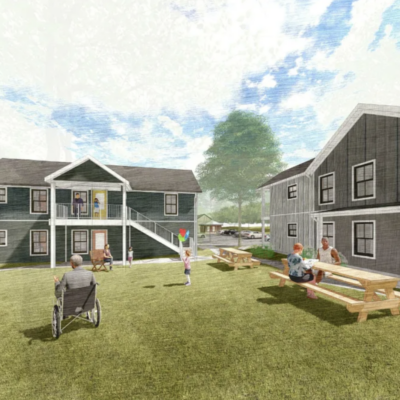Even though City Council backed the proposed 101′ building on the corner of W. Main and Ridge streets last Tuesday night, Councilor Dave Norris called the Planning Commission’s earlier decision to reject rezoning for the building "momentous."
Three weeks prior to Council giving the project a thumbs-up, the Planning Commission recommended that Council deny rezoning, deeming the developers’ $200,000 proffer for affordable housing insufficient. At the September 4 Council meeting, developers upped their proffer to $300,000. That breaks down to roughly $25,000 per affordable unit, nearly $6,000 more than the county’s standard.

Thanks to an extra $100,000, City Council overruled the Planning Commission and approved a rezoning to allow a 101′ building on this site at the corner of W. Main Street and McIntire Road.
|
"I think it was a historic moment on the part of the Planning Commission to say, ‘We’re not just going to pay lip service to affordable housing anymore. We’re actually going to raise the stakes here,’" says Norris.
Though proffer wrangling is common in the county, the city deals with the issue far less often. Many of the projects built within city limits are by-right. But Norris says that this project will force the city to develop a concrete proffers policy and put developers on notice that they will have to pony up more money for affordable housing.
"It is really sending shock waves through the development community, and not everybody’s happy with that," says Norris. "But what it’s saying is that we need the development community to be partners in this endeavor, helping us figure out how to generate more affordable housing."
Bob Englander, the developer of the W. Main building, was visibly pleased after Council’s decision to support the project. But he agrees that the city’s proffers policy is something that needs focus.
"Quite frankly I think [proffers] need to be addressed by the city," he says. "The city needs a policy as to what they are going to be. They don’t do a whole lot of rezoning, and there’s an awful lot of by-right development that we’re going to compete with."
Norris agrees. He says developers are willing to work with the city on affordable housing through proffers—to a point. "They don’t want it to be something that will make their projects financially unfeasible," he says. "And they want [proffers] applied consistently."
As a result of this project, says Norris, the city will now have to develop a more hard and fast proffers policy. He has already suggested one: The city will seek to have 15 percent of new units to be affordable for a range of income levels below 80 percent of median income, or the developer can contribute $25,000 per unit to the city for affordable housing.
C-VILLE welcomes news tips from readers. Send them to news@c-ville.com.





